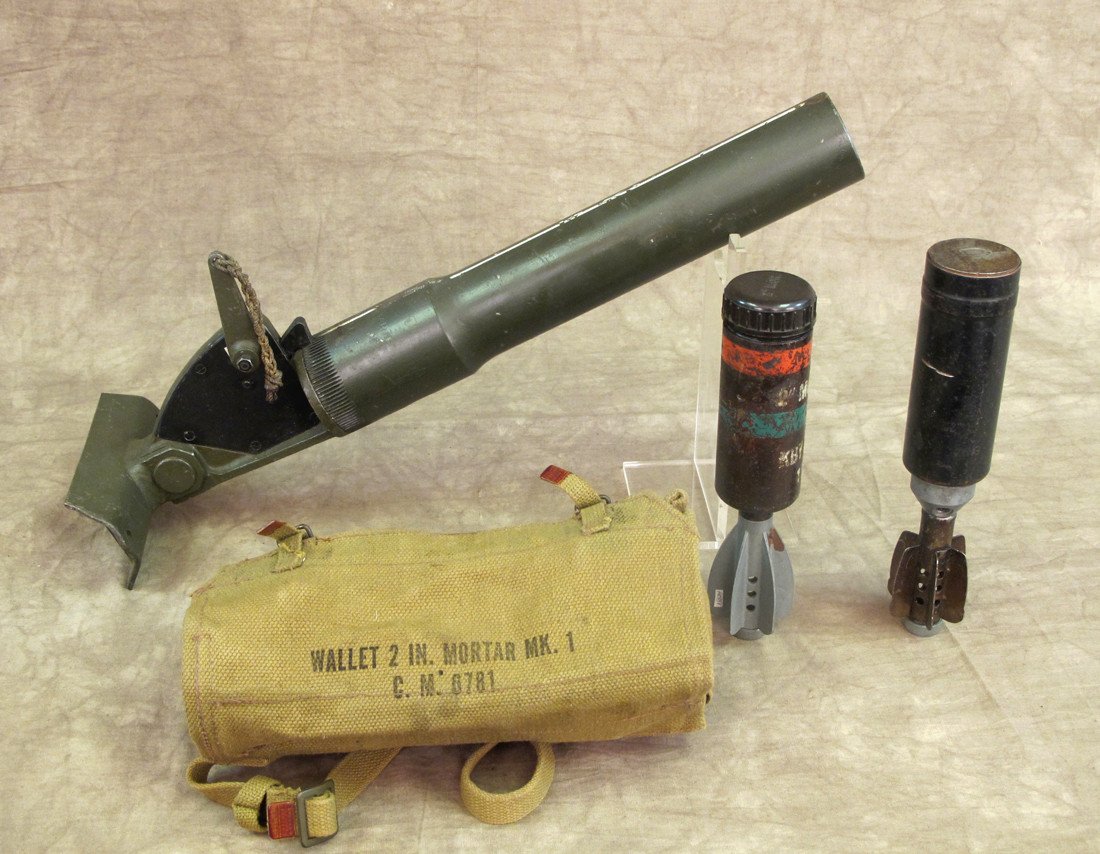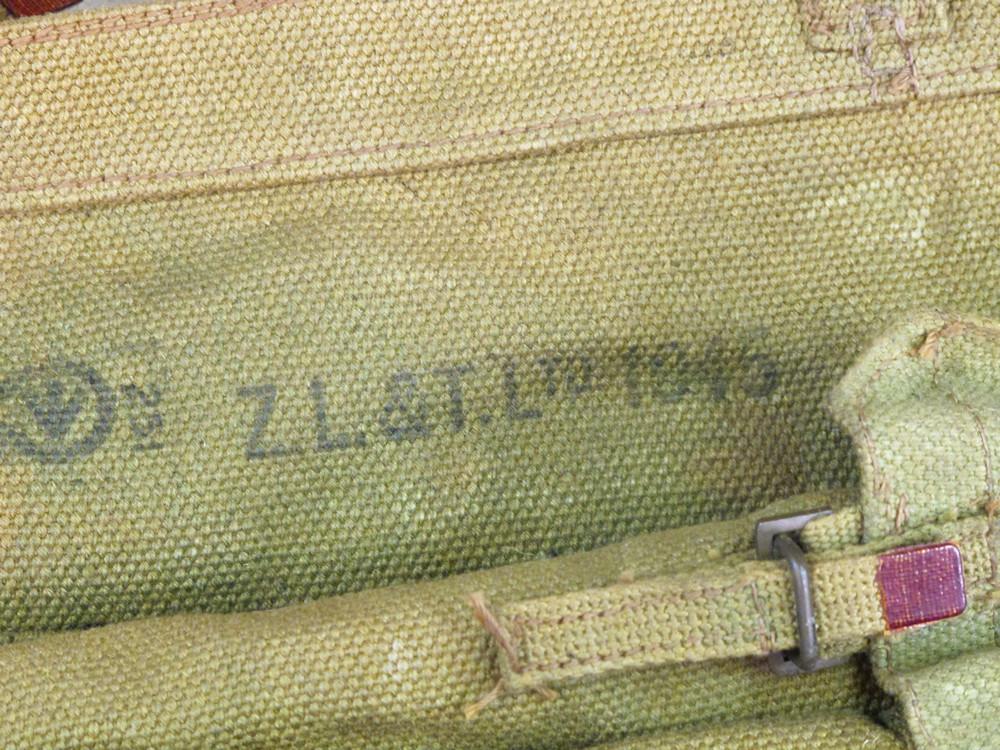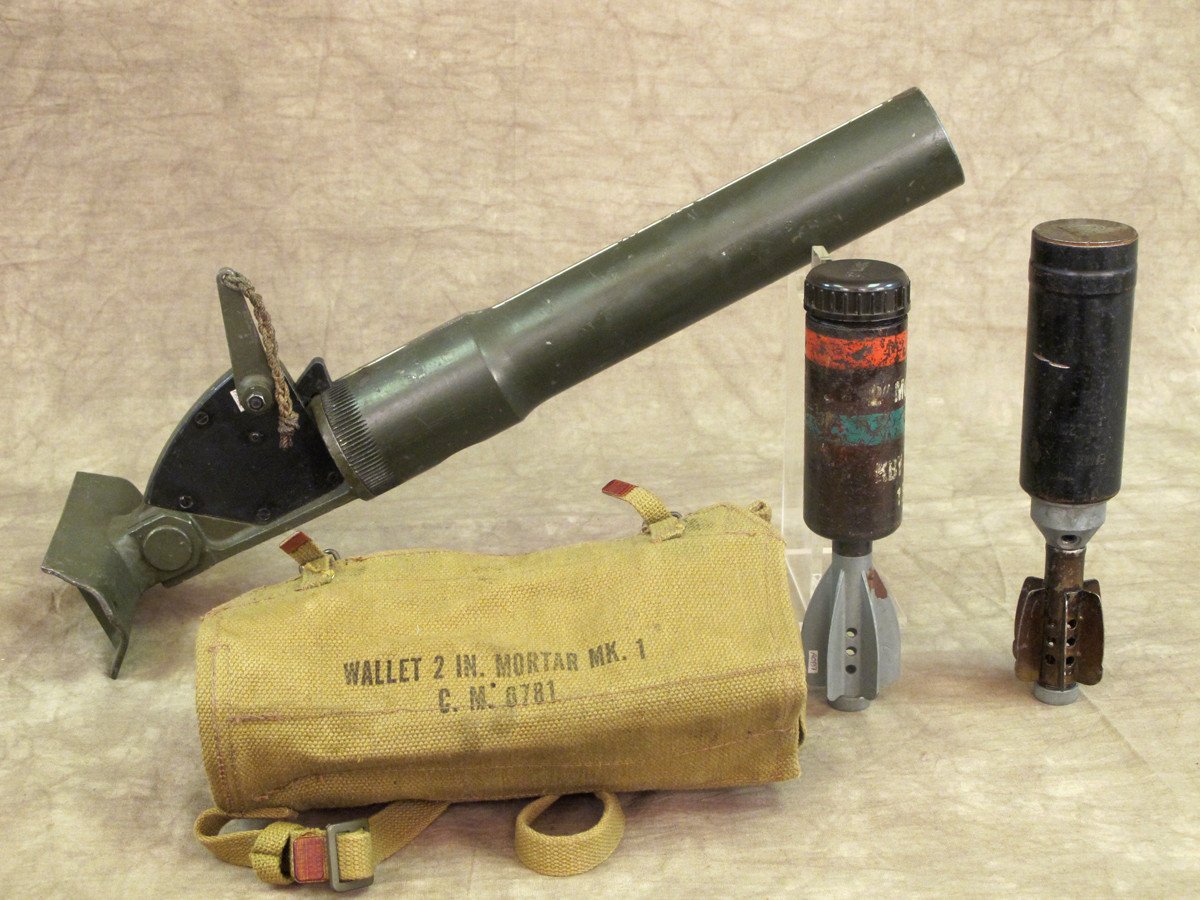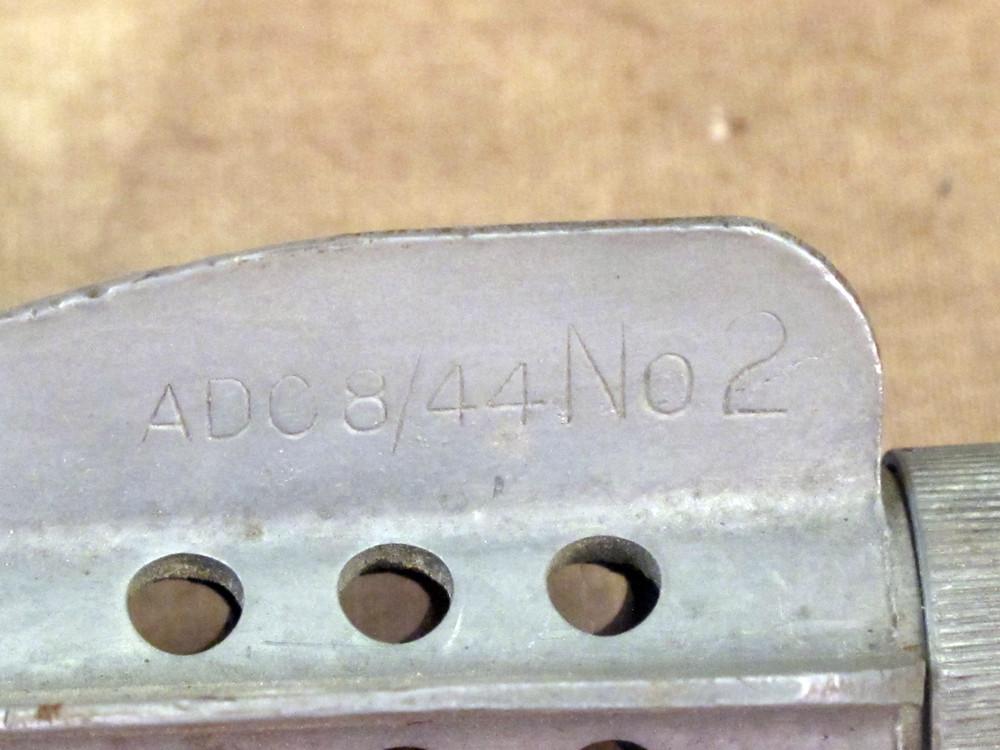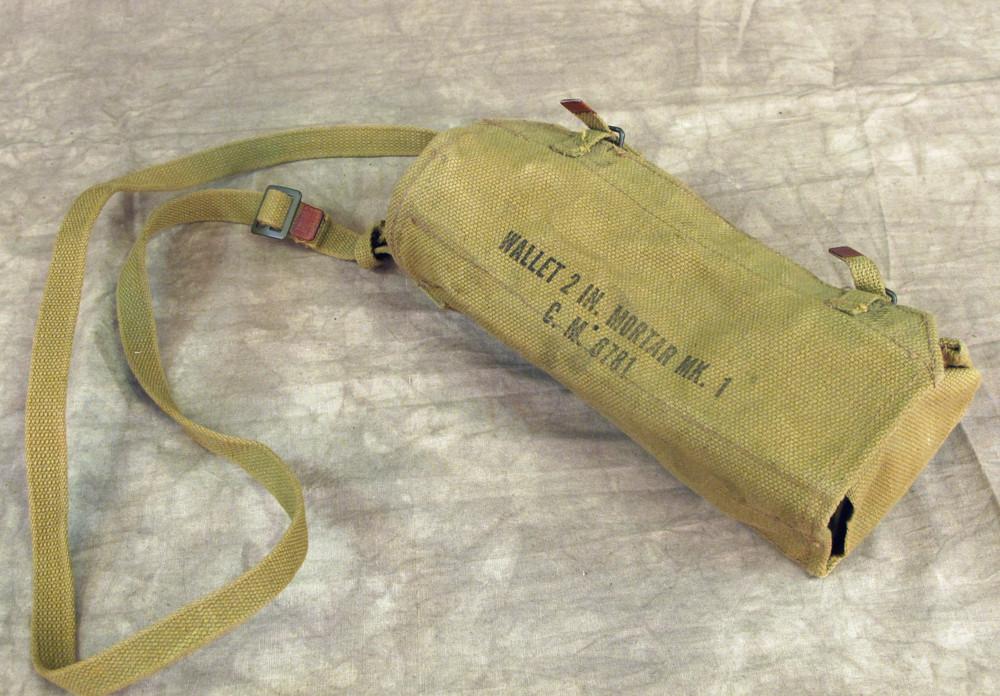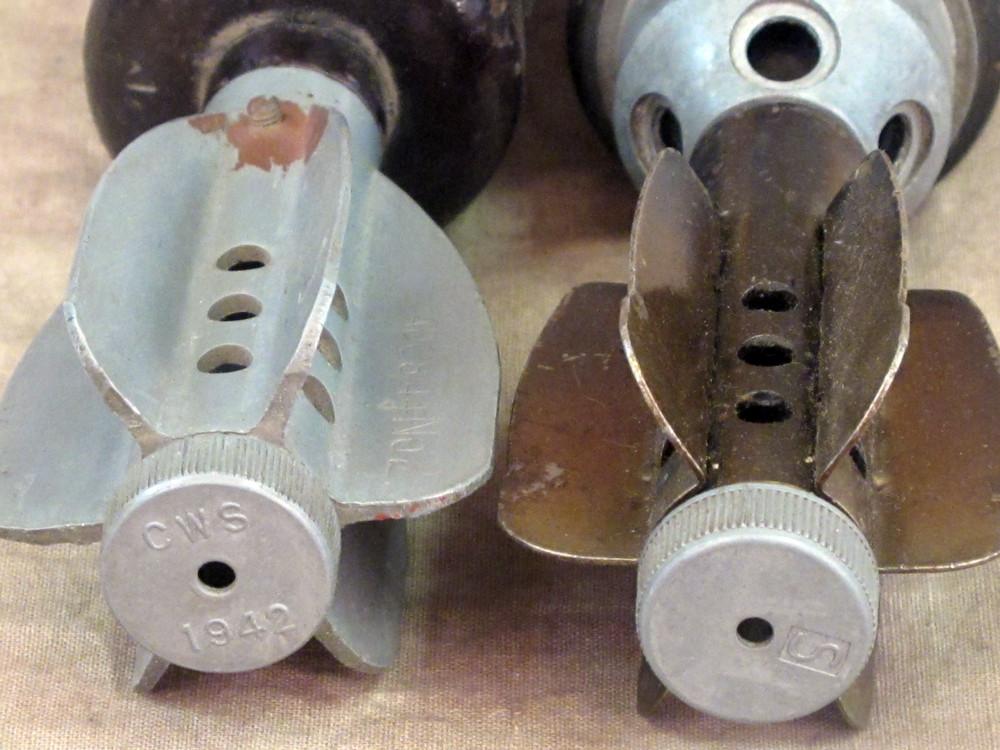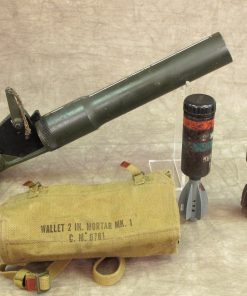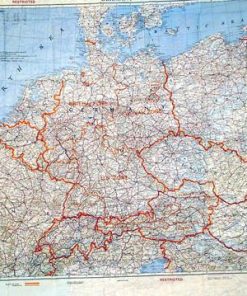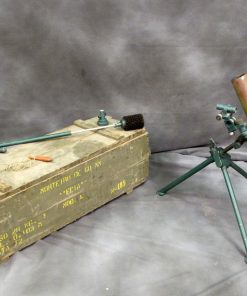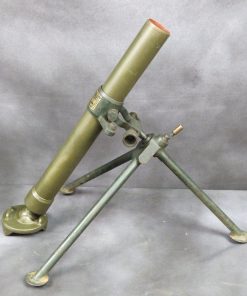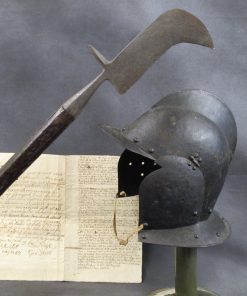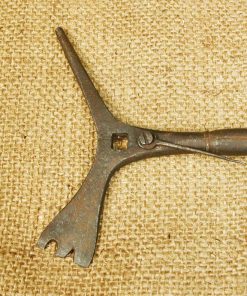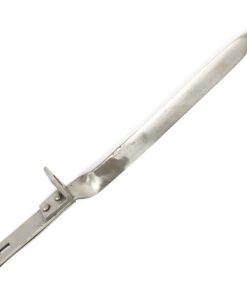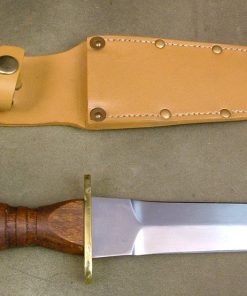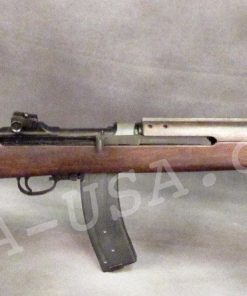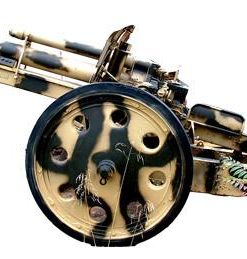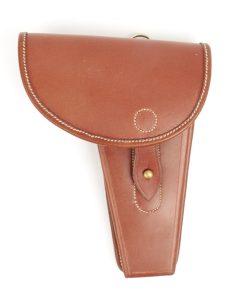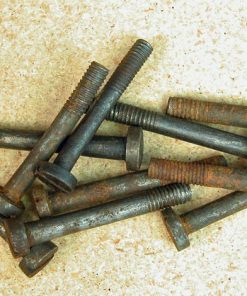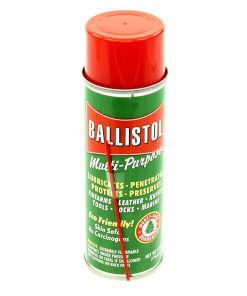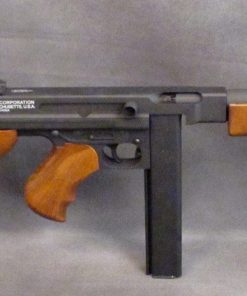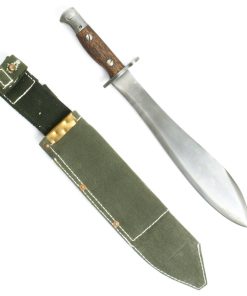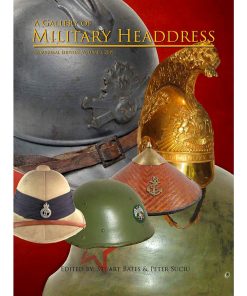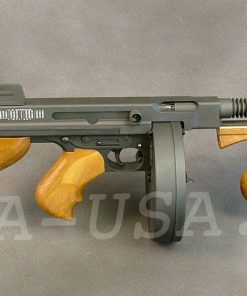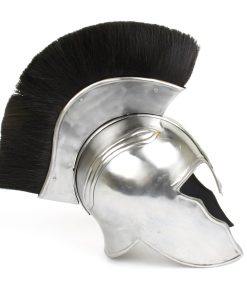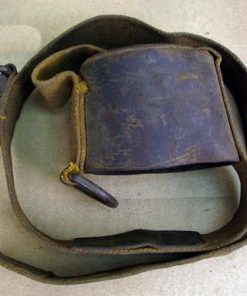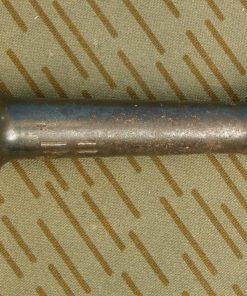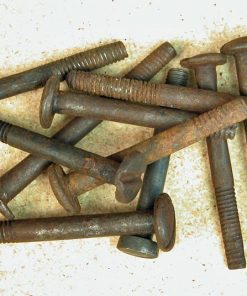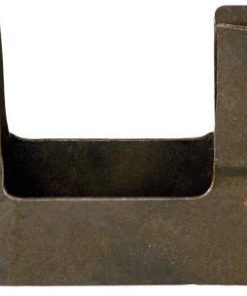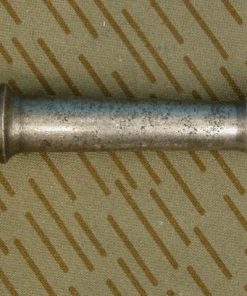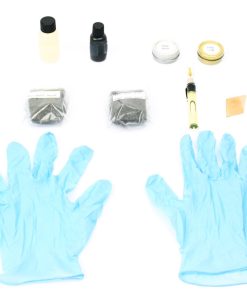Original British WWII Era 2-Inch Paratrooper Mortar Set with Inert Bombs and Cleaning Kit Original Items
$ 1.295,00 $ 323,75
Original Item: Only One Available. Demilitarized to specifications provided by the BATF, this is a fantastic 2-inch Mark 8* British 14″ Paratrooper Mortar. The set includes-
2-inch Mk 8* Shortened 14″ Paratrooper Mortar tube with base plate and trigger.
Two inert 2 mortar bombs.
Correct 1945 dated cleaning kit with Folding cleaning rod, brush & oil bottle.
Overall this set is in excellent condition.
History of the British mortar-
The British Army had two types of mortar in service at the outbreak of the Second World War, one of which was the 2-inch weapon for use with infantry platoons. The 2-inch mortar had been developed during the 1930s after the British Army had inspected weapons of a similar caliber in service with other European countries, including the Spanish 50mm mortar. Although deemed unsuitable for the British Army as it stood, the Spanish mortar did serve as the starting point from which the Armament Research Department could begin development of its own version.
In November 1937 ten examples of the new weapon were readied with 1600 rounds each of high explosive and smoke bombs. The resulting trials confirmed the reliability and dependability of the weapon. The Director of Artillery ordered the weapon to be placed in production in February 1938, only four months after the initial field trials, which meant that by 1939 some 500 of the weapons and their associated ammunition were already established in service as the Mk II with crews trained in the use of the weapon.
Over the duration of the war the 2-inch mortar was developed into no fewer than eight separate marks, from which also stemmed a number of other variations. Some were successful and others less so.
The standard service version of the 2-inch (51 mm) mortar had a barrel length of 21 inches (530 mm) and could fire a high explosive bomb weighing 2.25 lb (1.02 kg) out to a range of 500 yards. With such a short barrel the normal firing method, where the bomb was dropped down the tube and a pin in the base of the barrel struck the detonator in the tail of the bomb, would not work so firing was by a small trigger mechanism at the breech. Originally the 2-inch (51 mm) mortar was fitted with a large collimating sight with elevating and cross-level bubbles, but this was soon dropped as unnecessary in a front-line unit. It was replaced instead with a simple white line painted up the length of the barrel.
The firer only had to line this up in the direction of the target and fire a number of bombs for effect. Whilst this method of operation may sound rather haphazard, it worked well and the practice continued long after the war. The mortar evolved in other directions too, with the original large base plate being replaced by a simple curved model, to give it a combat weight of 10.25 lb (4.65 kg).
Due to its small size, and for simplicity the mortar had no forward strut or bipod like larger designs needed. The barrel would be held at the correct angle by one soldier while the other loaded and fired the round. It could achieve a firing rate of some eight rounds per minute. The bombs were cylindrical with a (perforated) four finned tail. For the HE projectile an impact fuze was fitted in the nose of the bomb. The illuminating round weighed 1 lb (0.45 kg) and the smoke round weighed 2.25 lb (1.02 kg). A whole range of other ammunition was also developed including a specialized bomb that cast a lightweight explosive-filled net over patches in minefields so that it could be detonated to clear a path.
Post war, the 2-inch mortar was kept in service to fire smoke and illuminating rounds. The mortar remained in service until the late 1980s when it was replaced by the Royal Ordnance 51 mm infantry mortar.
Fast Shipping with Professional Packaging
Thanks to our longstanding association with UPS FedEx DHL, and other major international carriers, we are able to provide a range of shipping options. Our warehouse staff is expertly trained and will wrap your products according to our exact and precise specifications. Prior to shipping, your goods will be thoroughly examined and securely secured. We ship to thousands clients each day across multiple countries. This shows how we're dedicated to be the largest retailer on the internet. Warehouses and distribution centres can be located throughout Europe as well as the USA.
Note: Orders with more than one item will be assigned a processing date depending on the item.
Before shipping before shipping, we'll conduct a thorough inspection of the items you have ordered. Today, the majority of orders will be delivered within 48 hours. The delivery time will be between 3-7 days.
Returns
The stock is dynamic and we cannot completely manage it because multiple stakeholders are involved, including our factory and warehouse. So the actual stock may alter at any time. It's possible that you may not receive your order once the order has been made.
Our policy is valid for a period of 30 days. If you don't receive the product within 30 days, we are not able to issue a refund or an exchange.
You can only return an item if it is unused and in the same state as the day you received it. You must have the item in its original packaging.
Related products
Uncategorized
Uncategorized
Armored Burgonet Helmet & Polearm from Scottish Castle Leith Hall Circa 1700 Original Items
Uncategorized
Angolan Rebel 1970s era 60mm Inert Display Mortar from Angolan Civil War Original Items
Uncategorized
Uncategorized
Uncategorized
Uncategorized
Band of Brothers ORIGINAL GERMAN WWII Le. F.H. 18 10.5cm ARTILLERY PIECE Original Items
Uncategorized
Uncategorized
Uncategorized
Uncategorized
Uncategorized
Uncategorized
Australian WWII Owen MK1 Machine Carbine SMG Custom Fabricated Replica with Sling Original Items
Uncategorized
Uncategorized
Uncategorized
